- Hey Dullblog Online Housekeeping Note - May 6, 2022
- Beatles in the 1970s: Melting and Crying - April 13, 2022
- The Beatles, “Let It Be,” and “Get Back”: “Trying to Deceive”? - October 22, 2021
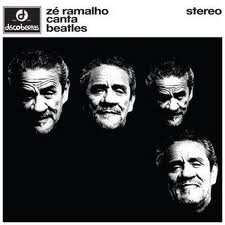
Crinsk Dee Night?
Courtesy of Dusty Groove America, a great soul/funk/jazz/world record store here in Chicago, I’ve discovered a number of Brazilian artists doing Beatles covers. One of the most interesting albums is Ze Ramalho Canta Beatles, which includes some solo songs as well, like this version of “Another Day.” Ramalho’s delivery has really grown on me.
And its good to see this song getting some positive attention, after years of being critically dismissed. As several on this blog have remarked (most recently Annie McNeil, in the “Drugs and Differences” thread), it’s striking that McCartney often writes sympathetic songs about women’s experiences. “Another Day,” far from being lightweight muzak, is an effective short story in song about a working woman’s struggles — released in 1971 and still relevant today.
If you like Ramalho’s cover, the Brazilian label Discobertas has produced several albums of Beatles covers, including this compilation that includes all the White Album songs.

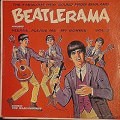
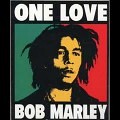


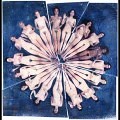

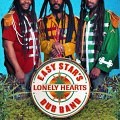


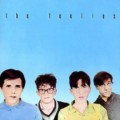
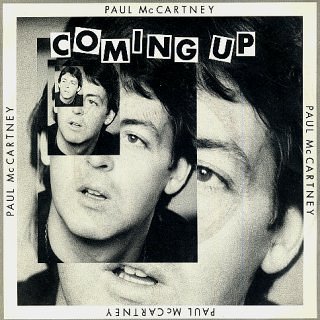
I agree about the relevance of Another Day. A lot of McCartney’s music was dismissed at that time because he wasn’t singing about war and student’s rights and the Chicago Convention. What no one seemed to realize was that his music and the topics he sang about would always remain fresh long after the ’60’s and early ’70’s were over. Sorry about that Jann.
Another Day is one of Paul’s most beautiful songs in my opinion. The melody, that bass line, time changes, the “middle eight”. Good stuff!
I am of the opinion that when men write pop songs ostensibly about women, they are actually writing about themselves, in a way they would not feel comfortable if using the first person.
SCBrain, that’s an interesting idea. How would you interpret “Another Day,” with that in mind?
I think that McCartney is usually writing about his own feelings in his story songs, but I don’t know that male songwriters generally are writing about themselves when they write about women. Can you say more about why you think that?
@Nancy:
Sorry for the delay in responding. My theory is based on the assumption that using an invented female character is a way for a male voice to express thoughts or feelings that he would otherwise eschew. In the case of “Another Day,” Paul is clearly pitying the woman and her meaningless, workaday existence. During the time when the song was composed and recorded (1969-1970) Paul was having a pretty tough time of it, but he’s not the kind to engage in self-pity, so he had a woman character in a song feel it for him. (Songs from the period clearly do reflect Paul’s unhappiness with the disintegration of his band and hence his self, but they are different in tone: “Let It Be” is calm and accepting of death; “You Never Give Me Your Money” is perhaps a bit self-pitying but really more frustrated and angry.)
So if that’s the theory, are there any other songs that I can point to that would back up my contention that songs from the perspective of women written by men are about some aspect of their personalities/emotional world that they would like to express but need some distance to do so comfortably? You know, there aren’t many! There’s “Baby’s In Black,” which sounds like a John song to me, and not incredibly revealing in emotional content. Same goes for “Day Tripper.” I don’t think “Lady Madonna” or “Lovely Rita” mean much on a personal level, but I could be convinced otherwise.
I think “For No One” supports the theory – although there’s the second person (the “you”) probably is closer to Paul’s feelings. “Martha My Dear” (although about his dog) is clearly written to himself to cheer himself up.
How about “Her Majesty”? Too slight to reveal much? I think you could argue that is autobiographical, or maybe even about John!
Are there more?
Very interesting, SCBrain. I think in general McCartney’s empathy songs are at least partly self-comforting (I went on about that in my post on the subject).
I think you could argue that “Eleanor Rigby,” for example, comes out of McCartney’s own fears of loneliness, which crop up in a lot of songs. “Little Willow” was apparently written about Mo Starkey, and later included in a compilation in honor of Princess Diana, but I think McCartney’s also up in that tree. “Jenny Wren” is another case of McCartney’s expressing sympathy for a female character — one who doesn’t want to talk.
I’m increasingly convinced that McCartney’s deepest emotions come out slantwise in his music, in the form of story or character songs. And your point about it’s being acceptable to pity/express concern for a woman, rather than expressing those feelings directly, seems plausible to me.
Not Lennon’s way of course — he had no trouble expressing sympathy for himself very directly.
McCartney’s penchant for distancing techniques can seem coy to some people (Lennon) but it is more productive in the long run. I am not sure whether the jury’s verdict on /Plastic Ono Band/ has changed from its early /Rolling Stone/-inspired masterpiece label, but I can only say for myself that I don’t enjoy listening to it, aside from the song “Love.” What might be stunning openness to one listener is just self-absorption to me, and the Primal Scream stuff is getting more dated every year. Taking yourself not-so-seriously has its dangers – we all know McCartney music like this – but his perspective on himself allowed him to explore his feelings without Lennon’s repeated breakdowns.
I see all of McCartney’s songs on /Abbey Road/ as expressive of feelings about the breakdown of the Beatles, and hence McCartney’s identity: if you change Maxwell to Macca, it’s all a bit too clear.